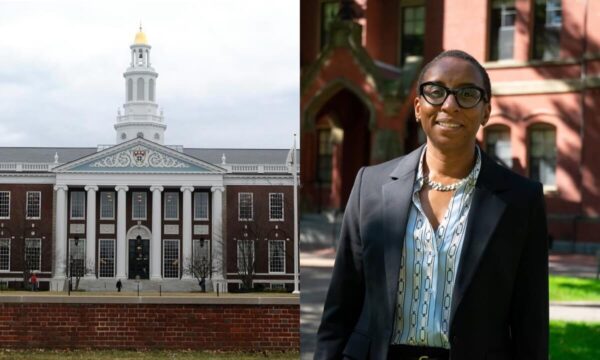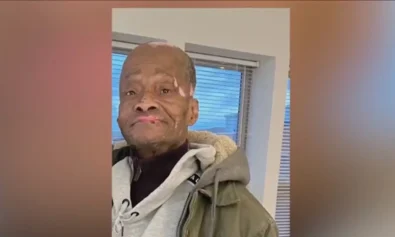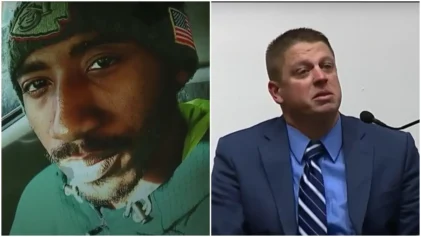Claudine Gay, Harvard University’s first Black president, resigned Tuesday amid accusations of plagiarism and a major backlash that emerged in recent months over her failure to address anti-Semitism on campus — marking the shortest tenure for any leader in the school’s 386-year history.
Gay released a statement, announcing she would step down as president and return to the faculty just six months after assuming the top role at the nation’s premier Ivy League college on July 1.

“It is with a heavy heart but a deep love for Harvard that I write to share that I will be stepping down as president,” Gay wrote, adding that it had “become clear that it is in the best interests of Harvard for me to resign so that our community can navigate this moment of extraordinary challenge with a focus on the institution rather than any individual,” she explained.
In her resignation, Gay revealed that she faced racial discrimination since the anti-Semitism controversy first erupted in early October amid the start of the Israel-Hamas war.
“It has been distressing to have doubt cast on my commitments to confronting hate and to upholding scholarly rigor — two bedrock values that are fundamental to who I am — and frightening to be subjected to personal attacks and threats fueled by racial animus,” the 53-year-old educator said.
For the past month, Gay has faced intense pressure to resign following a disastrous congressional hearing in which lawmakers excoriated her and other college administrators for being too soft on anti-Semitic viewpoints on their respective campuses.
As the controversy swelled, separate and unrelated accusations arose of suspected plagiarism by Gay in her Ph.D. dissertation after conservative watchdogs found instances where the lifelong scholar copied works without quoting, citing, or attributing phrases to original authors.
The allegations prompted The Harvard Corporation — the college’s governing board — to launch a quiet academic probe into Gay, which turned up “a few instances of inadequate citation” that required corrections but which amounted to no real violations of Harvard’s standards for academic conduct, the board stated at the time.
The decision allowed Gay to go back into her original works and insert citations and quotation marks that had been omitted. Still, more importantly, it reaffirmed her presidency amid growing calls to resign after students had called for the killing of Jews. At the same time, Gay was accused of not enforcing student codes of conduct to tamp down incendiary rhetoric.
But in the weeks since, several new allegations of plagiarism emerged, resulting in 47 total claims against Gay and putting pressure on the school to clarify academic policies that didn’t appear to apply to Gay.
The latest accusations against Gay, published Monday by The Washington Free Beacon, involve new claims she copied nearly half a page of material verbatim from David Cannon’s 1999 book “Race Redistricting and Representation: The Unintended Consequences of Black Majority Districts” in a paper she wrote in 2001.
Gay is also accused of copying author Carol Swain — a former Vanderbilt University professor — and at least three other scholars she copied but did not cite in her doctoral thesis at Harvard 26 years ago.
In light of the school’s choice to keep Gay, Swain said Harvard had given preferential treatment to Gay after she had benefitted from the school’s diversity initiatives, adding that Harvard stood with Gay only because she is the university’s “first Black president.”
“It is an insult to intelligence what Harvard University has done,” Swain said previously in comments about Harvard Corporation’s decision to let Gay off the hook for plagiarism, adding: “I feel like her whole research agenda, her whole career, was based on my work.”
In recent weeks, Gay resisted calls to resign while strongly defending her academic work, saying in a statement on Dec. 11 that “I stand by the integrity of my scholarship.”
“Throughout my career, I have worked to ensure my scholarship adheres to the highest academic standards,” Gay wrote.
Following last month’s fireworks on Capitol Hill, more than 500 faculty members at Harvard signed a letter expressing support for Gay while urging the historic leader to “defend the independence of the university and to resist political pressures that are at odds with Harvard’s commitment to academic freedom, including calls for the removal of President Claudine Gay.”
In another sign of support for Gay, more than 770 Black Harvard alumni and allies wrote a letter to Harvard’s board last month backing Gay while also condemning anti-Semitism.
Harvard University Provost Alan M. Garber will step in as interim president while the university begins a search for a permanent replacement, according to the Harvard Crimson, citing an email from the Harvard Corporation.


